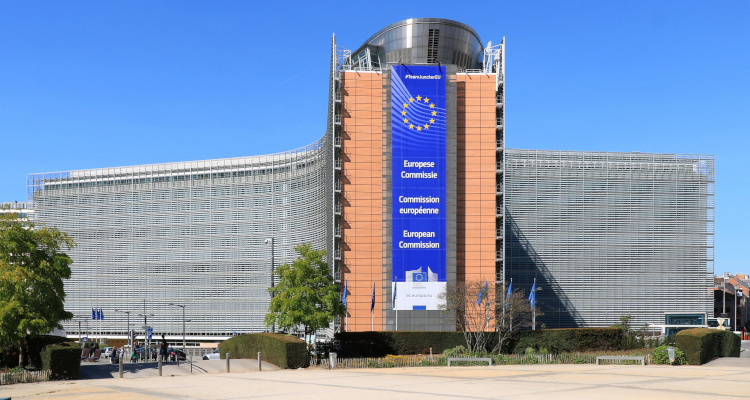Brussels’ Berlaymont building, which serves as the headquarters of the European Commission. Photo Credit: EmDee
The European Parliament has officially voted in favor of the far-reaching Digital Services Act, which, among other things, will implement a number of operational requirements for ticket-resale platforms.
Members of the European Parliament just recently approved the nearly two-year-old measure (539 votes to 54 votes, with 30 abstentions), and an organization called The Face-value European Alliance for Ticketing (FEAT) reached out to Digital Music News with a formal release celebrating the development.
FEAT, having aimed “to promote better ticket resale practices across Europe” since its 2019 founding, highlighted the specifics of the law, which arrives on the heels of New York State’s expanded effort to reign in ticketing platforms as well as Italian regulators’ $25 million fine against Viagogo.
However, The Face-value European Alliance for Ticketing also indicated that the Digital Services Act “could have gone further” and made clear its plans to “continue to campaign for tougher legislation to prohibit profiteering on uncapped resale sites at the expense of fans and the live industry.”
Regarding the newly passed legislation’s background and details, the European Commission rolled out the Digital Services Act back in December of 2020. Late April of 2022 brought with it an agreement between EU member states and the European Parliament on the bill, which has been packaged with a sweeping Digital Markets Act measure.
According to the European Commission’s more than 5,000-word-long Q&A about the Digital Services Act, the law “regulates the obligations of digital services that act as intermediaries in their role of connecting consumers with goods, services, and content.”
“Online marketplaces” are subject to the Act’s comprehensive regulations, including the prohibition of “dark pattern” interfaces, “referring to misleading tricks that manipulate users into choices they do not intend to make,” the text states.
Similarly, the affected services will be required to provide EU “researchers” with access to information so that the individuals can determine “how platforms work and how online risks evolve,” per the Commission.
And in terms of ticketing giants like Ticketmaster and their presence on search engines such as Google, the Commission explained: “Specific rules will be introduced for very large online platforms and very large online search engines that reach more than 45 million users, given their systemic impact in facilitating public debate, economic transactions and the dissemination of information, opinions and ideas.
“Online marketplaces will need to identify their business users and clarify who is selling a product or offering a service; this will help track down rogue traders and will protect online shoppers against illegal products, such as counterfeit and dangerous products,” the Commission likewise disclosed, noting also that ticketing platforms will have to provide annual reports pertaining to their operations.
Lastly, and perhaps most notably, the European Commission relayed: “Each Member State will need to appoint a Digital Services Coordinator, an independent authority which will be responsible for supervising the intermediary services established in their Member State and/or for coordinating with specialist sectoral authorities.”
The initially mentioned Face-value European Alliance for Ticketing elaborated that these coordinators will possess “far-reaching powers of investigation, including to carry out on-site inspections, interview staff members and require the production of documents and information.” Companies in violation of the Digital Services Act can be made to pay up to six percent of their global revenue (in line with current regulatory powers), the European Commission said.

